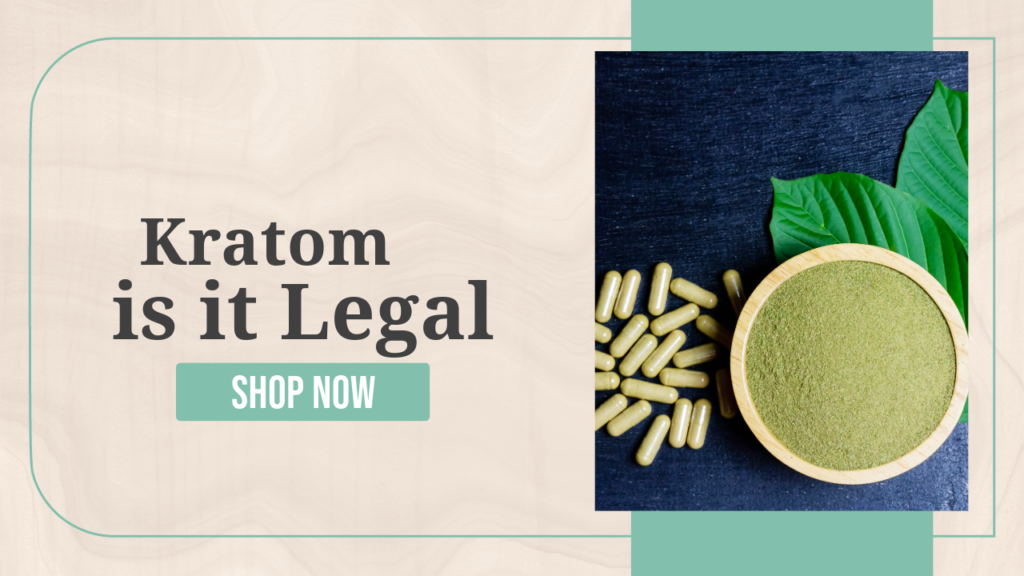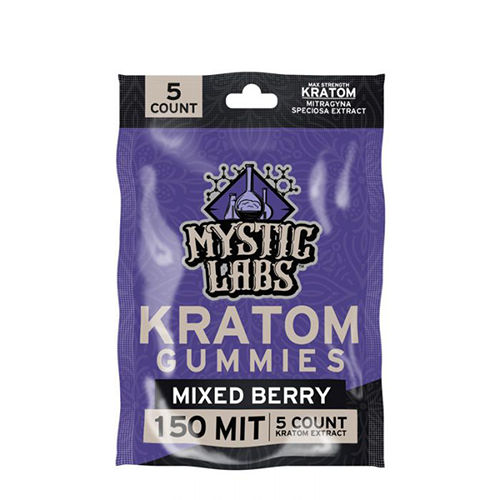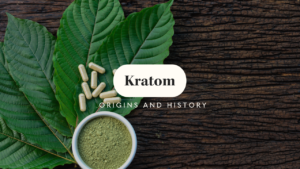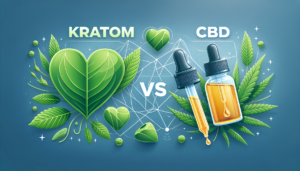Kratom, a tropical evergreen tree from Southeast Asia, is known for leaves with psychoactive properties that have been traditionally used for pain relief, anxiety, depression, and other ailments. With an estimated 1.7 million Americans turning to kratom in 2021, questions such as “is kratom legal?” and concerns about the safety and regulation of kratom products are increasingly prevalent. Despite its traditional uses, the FDA has issued multiple kratom warnings regarding its unapproved status and potential health risks, including liver toxicity and substance use disorder, prompting a push for more scientific research concerning its therapeutic potentials and safety issues.
With varied legality across the globe and different states within the U.S., the legal status of kratom is a complex issue. This article will discuss the intricacies of kratom’s legal status in the U.S., explore the worldwide perspective, and provide updates on the ongoing debate and actions taken regarding the kratom ban. Moreover, readers will gain insights into navigating the use of kratom products legally and safely while considering quality and safety measures.

Understanding Kratom and Its Effects
Kratom, scientifically known as Mitragyna speciosa, is a plant that has garnered attention for its unique chemical properties and effects on the human body. Understanding the impact of kratom requires an analysis of its active compounds and their actions within the brain and body:
- Active Compounds: Kratom contains mitragynine and 7-OH-mitragynine as its two primary chemical compounds. These compounds are known to interact with opioid receptors in the brain, which are the same receptors targeted by opioid drugs such as codeine. However, these compounds also affect other neurotransmitter systems, including serotonin, dopamine, norepinephrine, and kappa opioid receptors, suggesting a complex pharmacological profile.
- Effects on the Body: At lower doses, kratom can act as a stimulant, providing users with increased energy and alertness. Conversely, higher doses typically induce pain relief and can lead to euphoric sensations. The effects of kratom are generally felt within 5-15 minutes after consumption and can last between 2-5 hours.
- Potential Risks and Side Effects:
- Addiction and Withdrawal: Despite some users claiming kratom helps with opioid addiction, it is itself highly addictive. Withdrawal symptoms can mirror those of opioid withdrawal, including muscle aches, nausea, vomiting, and intense cravings.
- Overdose and Adverse Reactions: Overdosing on kratom can lead to severe symptoms such as liver injury, psychosis, seizures, and hallucinations. Long-term use has been associated with additional health concerns, including liver damage and psychotic symptoms.
- Varied User Experience: The effects of kratom products can differ greatly due to factors like dosage, individual tolerance, and product purity, with some products containing harmful contaminants.
Given the potential for abuse and the FDA’s warning against its use due to safety concerns, including the risk of addiction and overdose, individuals should approach kratom with caution. It is essential to consult with a healthcare professional before using kratom, particularly for those with existing health concerns or those taking other medications. The National Institute on Drug Abuse (NIDA) emphasizes the need for more research to understand kratom’s effects on opioid use and its potential medicinal applications.
While kratom’s traditional uses for pain relief and mental health support are noted, the FDA’s stance reflects concerns about kratom’s safety profile and its unapproved status for any therapeutic uses. Users should be aware of the risks and the legal status of kratom in their area before considering its use.
Legal Status of Kratom in the United States
In the United States, the legal status of kratom is not uniform and varies significantly from state to state. Here is an overview of the legal landscape:
- Federal Stance on Kratom:
- The FDA has not approved kratom for any medical use, and it is not legally marketed as a drug product, dietary supplement, or food additive in the U.S..
- There have been efforts by the FDA to limit the availability of unlawful kratom products, which have not been approved as prescription or over-the-counter drug products.
- State-Level Legality:
- Illegal States: Kratom is banned in Alabama, Arkansas, Indiana, Rhode Island, Vermont, and Wisconsin.
- Legal with Regulations: In other states, kratom is legal but subject to regulations. For instance, the Kratom Consumer Protection Act (KCPA) has been enacted in some states to ensure the safe production and sale of kratom products.
- Legal but Regulated: Kratom can be sold as a dietary supplement but is subject to FDA regulation and potential detention without physical examination.
- Variations in State Regulations:
- Banned in Specific Regions: Apart from the states where it is completely illegal, there are certain jurisdictions within legal states where kratom is banned.
- Legal States: In most states, kratom is legal to purchase and use, although it may be subject to local regulations and quality checks are not mandated by the FDA.
- Criminal Offense: In Wisconsin, for example, it is a crime to possess or deliver kratom.
The legal status of kratom in the U.S. is a dynamic and evolving issue. While it remains legal on a federal level, individual states have the authority to ban or regulate its sale and use, leading to a patchwork of legislation across the country. It is crucial for individuals to stay informed about the specific laws in their state and local jurisdiction to ensure they are in compliance when purchasing or using kratom products.
Kratom Legality Around the World
Kratom’s legal status is a complex and varied issue across the globe, with some countries enforcing strict bans while others have more lenient or ambiguous regulations. Here’s an overview of the international legal landscape surrounding Kratom:
- Asia:
- Banned: Most Asian countries have prohibited the use of Kratom, including Indonesia, Japan, Malaysia, Myanmar, Singapore, South Korea, and Vietnam.
- Ambiguous: The legality in China remains unclear, and it is advised against transporting, selling, or using Kratom within the country.
- Legal Developments: Thailand, which once banned Kratom, removed it from the list of prohibited substances in 2021, recognizing its potential medicinal uses.
- Oceania:
- Australia: Completely bans the use and sale of Kratom.
- New Zealand: Classifies Kratom as a Schedule 1 substance, making it illegal to sell, buy, or use.
- Europe:
- Explicit Bans: Kratom is illegal in several European countries, including Belarus, Bulgaria, Croatia, Denmark, Estonia, Finland, France, Germany, Latvia, Lithuania, Poland, Romania, Russia, Sweden, and Switzerland.
- Legal with Restrictions: In countries like Austria, Spain, and Germany, Kratom is technically legal but may face restrictions or regulatory challenges.
- Controlled Substance: The Czech Republic considers Kratom a controlled substance and proposes a strictly regulated market to prevent misuse among youth.
- North America:
- Canada: Kratom is deemed unsafe for human consumption, and selling or trading it is illegal.
- Mexico: Kratom is not a controlled substance and is legal to use, carry, and purchase.
- South America:
- Argentina: Kratom is illegal due to its mitragynine content.
- Brazil: Excluded from the general allowance in South America, with no specific laws prohibiting Kratom.
- Other Countries: Generally permit the use of Kratom without prohibitive laws.
- Africa and Middle East:
- South Africa: Allows the use of Kratom but restricts medical claims associated with it.
- Israel: Kratom is illegal and classified as a dangerous drug.
It is essential to note that while Kratom is legal in many countries and states, its legality can vary widely. Individuals should always check their local laws before purchasing or using Kratom to ensure they are in compliance. Given the ongoing changes in legislation, staying informed about the latest kratom ban updates and legal developments is crucial for users and stakeholders in the Kratom community.
The Debate Over Kratom’s Legality
The debate over kratom’s legality is multifaceted, with government agencies, advocacy groups, and the public weighing in on the conversation. Here are some of the key points of contention:
- FDA Concerns vs. Advocacy Groups:
- The FDA views kratom as a substance of concern due to potential risks and the absence of proven health benefits. They have issued warnings against its use for medical treatment, citing a lack of scientific data on safety and efficacy.
- Conversely, the American Kratom Association has established guidelines for good manufacturing practices, including safety verification and product labeling, to ensure consumer protection.
- DEA’s Stance and Public Response:
- The DEA once considered classifying kratom as a Schedule I controlled substance, which would put it in the same category as heroin and LSD, indicating a high potential for abuse and no accepted medical use. However, this move was met with significant public pushback, leading the DEA to withdraw the decision.
- Potential Health Risks vs. Research Support:
- Health risks associated with kratom, as stated by the FDA, include liver toxicity, seizures, and addiction. Despite these concerns, the FDA supports further research into kratom to better understand its effects and therapeutic potential.
- Critics have challenged the FDA’s use of the PHASE methodology, an experimental computer model designed to predict kratom’s effects, calling for more empirical research.
- Prohibition vs. Regulation:
- Some argue that banning kratom could drive individuals toward more harmful substances, such as heroin or fentanyl, potentially leading to more deaths by suicide or unintentional overdose.
- Regulation is seen by many as a preferable approach to prohibition, as it ensures a safer supply of kratom and does not hinder ongoing research.
- Legal Accessibility and Safety:
- Kratom is currently legal and accessible in many areas. However, its safety and effectiveness have not been thoroughly established due to a lack of comprehensive studies.
- The FDA has taken steps to limit the availability of unlawful kratom products, exercising authority to protect consumers from unapproved products and misleading claims.
- Uncertain Future of Kratom Legality:
- The legal status of kratom remains in flux, with U.S. and international agencies reviewing emerging evidence to inform future policy decisions.
- The ongoing legal debate surrounding kratom may set a precedent for how other herbal psychoactive substances are treated in terms of advocacy and legislation.
This ongoing debate highlights the complexity of the issue, where the need for consumer safety intersects with the desire for access to alternative therapies. The lack of consensus on kratom’s legal status underscores the importance of continued research and informed policymaking.
Navigating Kratom Use Legally and Safely
Navigating the complex landscape of kratom legality and safety can be challenging for consumers. To use kratom responsibly, consider the following guidelines:
- Understanding Risks and Safe Consumption:
- Be aware that kratom use can lead to serious health issues, such as liver toxicity, seizures, and substance use disorder (SUD).
- Start with a low dose of kratom, approximately 1-2 grams, and only increase gradually to monitor your body’s response and minimize side effects.
- Avoid combining kratom with other drugs or medications to prevent dangerous interactions, including seizures and liver damage.
- Selecting Quality Kratom Products:
- Purchase kratom from reputable vendors that adhere to Good Manufacturing Practices (GMP), reducing the risk of contamination and ensuring product quality.
- Stay informed about any kratom warning of contaminated products, such as those with Salmonella or heavy metals, which pose significant health risks [1].
- Report any adverse events after using kratom to the FDA to contribute to the safety monitoring of these products.
- Seeking Help and Information:
- If you or someone you know is struggling with kratom misuse or addiction, contact the Banner Poison & Drug Information Center at 800-222-1222 for guidance.
- Additional resources for addiction support and treatment include Banner Behavioral Health (800-254-4357), SAMHSA (800-662-4357), and the 988 Suicide & Crisis Lifeline by dialing 988.
- Consult with a healthcare provider if you have health conditions or concerns before using kratom, and avoid chronic use to prevent dependence and withdrawal symptoms.
By following these precautions, individuals can make more informed decisions regarding kratom use, prioritizing their health and legal compliance.
Conclusion
Reflecting on the complexities of kratom’s legal landscape, we recognize the delicate balance between potential therapeutic benefits and public health concerns. The patchwork of regulations across the United States and varying international laws underline the importance for users to stay well-informed about their local legality and safety measures. As the conversation around kratom continues to evolve, considering the FDA’s perspectives alongside the positions of advocacy groups remains critical in shaping a well-regulated marketplace.
As individuals navigate through the intricate fabric of kratom use, they should prioritize personal health and legal compliance, and embrace ongoing education to safeguard against any risks. For those looking to explore kratom within the boundaries of the law, it is essential to consult reliable sources and find trustworthy vendors who adhere to the highest standards of product safety and quality. By doing so, we not only ensure our own well-being but also contribute to a more responsible and enlightened discussion around this controversial herb.
FAQs
Currently, there are no “People Also Ask” questions and answers provided to create a set of FAQs. If you have specific questions about Kratom legality, please provide them and I will be happy to assist with rephrased answers.
References
U.S. Food & Drug FDA and Kratom https://www.fda.gov/news-events/public-health-focus/fda-and-kratom
Has the FDA approved kratom, which is being debated for legalization in Wisconsin? by Tom Kertscher / Wisconsin Watch https://wisconsinwatch.org/2023/09/fact-brief-kratom-fda-wisconsin-legalization/
Banner Health Is the Herbal Product Kratom Safe or Harmful? https://www.bannerhealth.com/healthcareblog/teach-me/kratom-is-legal-but-is-it-really-safe
Drug Engorcement Administration Drug Fact Sheet Kratom https://www.dea.gov/sites/default/files/2020-06/Kratom-2020_0.pdf




